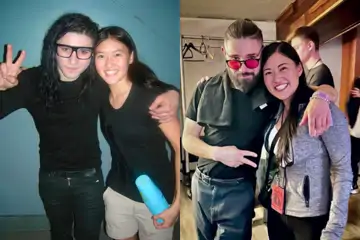FURY

"It is 1945," an intertitle reads on Fury's opening, a misplaced bit of time-travelling confidence for a film that later features Brad Pitt yelling "let's bumrush this cocksucker" and involves tanks firing at each other with something rather resembling Star Wars lasers, assumedly so Player A and Player B can tell who's firing on whom. In war - and, hell, in 1945 - there's no such surety and clarity, but Fury is a film desperate for both.
With its '90s-rapper slang and video-game visuals, Fury never resembles its World War II setting, but the chosen battlefield - not love, but Nazi Germany - is hardly coincidental. Where the murky moralities of modern-day conflict - with its drone warfare, its national security, its corporatisation - have caused even Cap'n America himself to reconsider his patriotism, WWII is no such moral minefield. The Nazis are bad, the Americans are good, and that's the way it'll stay, for Hollywood entertainment eternal.
There's no such surety and clarity, but Fury is a film desperate for both.
Fury is set, notably, in the war’s dying days, when the Germans are retreating, the US in hot pursuit. There's clear contemporary resonance here: Americans as liberators on foreign shores, freeing oppressed villagers from the yoke of a Totalitarian state; invading enemy turned great emancipator. It's about war as a "righteous act," with Bible verses used to justify killing enemies, and dying in service of your country glorified as martyrdom. The soldiers herein don't need to worry about moral greys: with the Nazis on the bad-guys side, Fury's story is writ in black-and-white.
The war will be won, any day now, and that sense of fait accompli says much about how Americans view all wars. "Why don't they just surrender?" asks Logan Lerman; Pitt responding that a whole bunch more people are going to have to die for this war to actually be over, no matter how much everyone seems to want it. "Ideals are peaceful," he sagely intones, "history is violent." Death is everywhere in Fury, as is suffering, as is mud; this a military-recruitment action-movie that sure doesn't skimp on War Is Hell imagery.
Don't miss a beat with our FREE daily newsletter
Fury marks the latest film for David Ayer, best known for penning Training Day and directing End Of Watch. That cop-duo dynamic is echoed, here, as Pitt plays a grizzled army vet - his nickname is literally Wardaddy - forced to take Lerman's pseudo-pacifist pencil-pusher under his wing when the kid's moved from behind a desk to inside Wardaddy's titular tank.
The crew therein are a cast of misfits: Michael Peña, a moustachioed Mexican ripe for era-relevant racism; Shia LaBeouf is daringly-weird as a Midwestern bible-basher; Jon Bernthal, a toothless yokel who looks like he done escaped from prison in O Brother, Where Art Thou?. They're a cast of caricatures that make up a rag-tag crew. Trapped inside a tin-can on wheels (Ayer is a former Naval sailor whose first Hollywood gig was writing the screenplay for submarine movie U-571), our platoon, in its varied walks-of-life, symbolises America itself.
When Ayer abandons the action-movie and turns this symbolism into daring drama, he finds by far Fury's most memorable sequence. After a German village is liberated, the soldiers and some randy locals throw wild booze-up. Pitt and Lerman, men of a more thoughtful stripe, end up, however, taking tea in a townhouse with a pair of comely, upper-crust fräulein. Lerman plays piano and kisses the blonde; Pitt gets a wash and a clean shave; civilisation is rediscovered.
But, soon, there's a knock on the door, and the redneck, the spick, and the preacherman come stumbling in, drunk and disgusting, spoiling for a fight, uncivilised as fuck. This is, Ayer is saying, what you get with America: if you want the handsome movie-stars and sweet songs and freedom, you've gotta take the inbred and ignorant and God-fearin', too.

This Is Where I Leave You

Adam Driver doesn't fit in in This Is Where I Leave You. That's his role in the script: the youngest, black-sheep son of a sprawling Jewish family that reunites for the funeral of their emotionally-removed patriarch; a character so hammered out of archetype that he wears a black leather jacket, keeps a pack of fags in the sleeve of his black t-shirt, and drives a black convertible.
Driver doesn't fit in looks-wise, either. If you're to be able to suspend belief badly enough to believe that Corey Stoll, Jason Bateman, and Tina Fey could all somehow pass for siblings - maybe try squinting? - it's still impossible to extend that to Driver. With his sweaty pallor, his Transylvanian nose, and his elephantine ears, Driver's exaggerated features are more striking than ever, here; it so implausible he descended from the same set of semen-and-egg as the rest of the principal cast that you're waiting for the never-to-come revelation that he was the result of some wandering affair by Jane Fonda, the libertine mom of ample cleavage and chronic over-sharing.
At times, it almost feels like he's acting in another movie. Another better movie.
And Driver doesn't fit in as an actor, either. His delivery is so strange, so unexpected that he can make minor lines - "mazel tov?" as an unsure question - the stuff of anxious, edgy comedy. If the cast's vast ranks of road-tested professionals (also: Rose Byrne, Kathryn Hahn, Connie Britton, Timothy Olyphant, Dax Shepherd) can deliver their comic banter and faux-philosophical musings snappily on beat, Driver delights in landing on the off beats, in playing at odds with his co-stars. At times, it almost feels like he's acting in another movie. Another better movie.
Because, for all the names on its marquee and its aspirations of prestige, This Is Where I Leave You plays as a parade of clichés. Bateman is the standard first-act sad-sack: dumped by his wife, fired from his job, lumbered with a slipped disc, his life so in shambles he's grown a beard. It sets the tone for a film where the sprawling cast speaks their stereotypes aloud: Driver calls himself "the family screw-up"; Aaron Lazar, playing Fey's high-powered-business-dude husband, says "I'm an asshole!"
But the film is built around Bateman, who charms all the ladies - Fey, Fonda, Hahn, Byrne - as he bumbles along with ruffled affability; the sane one in a family of crazy. "I've never taken any chances, I've spent my whole life playing it safe," Bateman says, at one point, lying prone on the ice next to Boo-yrne, his manic pixie love-interest, in a visual that dares riff on Eternal Sunshine Of The Spotless Mind. It's a second-act scene that telegraphs a final-reel call-back; with Bateman - once it's rained in the everyone-is-sad montage - bound to throw off his man-sads, kiss the girl, and literally drive off into the sunset.















